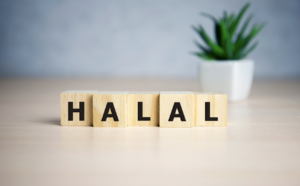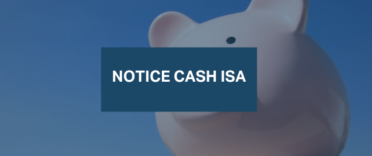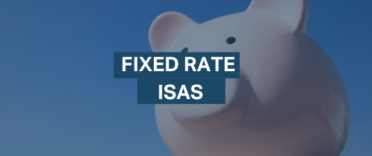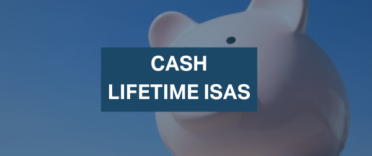
What is an ISA?
ISA stands for individual savings account. Its main feature is that you do not pay tax on the money held in the account. ISAs were introduced in the UK over two decades ago with the aim of encouraging more people to build a pot of savings. You can also invest through an ISA via a Stocks and Shares ISA, or build up a savings pot for a child through a Junior ISA.
The restrictive element of an ISA is that you can only save £20,000 in a single tax year. However, there are exceptions if you have a flexible ISA.
Standard cash ISAs earn the saver additional money through interest, while Stocks and Shares ISAs invest your money in a variety of different places to grow your savings pot. Earning interest and investing in a broad range of areas will likely be red flags for anyone looking for a Sharia-compliant savings option. However, UK customers can access specialised Halal ISAs that do not earn interest and only invest in specific fields.
What Islamic finance rules apply to ISAs?
Two of the main pillars of Islamic finance are that money should not earn interest and that investments should not cause any harm.
This means that conventional Cash ISAs are non-Sharia compliant, as the money you save accrues interest over time. In Islam, money holds no intrinsic value, but it is a tool to exchange goods and services. If money cannot earn money, then your savings account should not pay any interest. However, there are other ways to use your savings.
The alternative payment used by Islamic banks and Sharia-compliant accounts is a system called Expected Profit Rate (EPR). Under this system, you are paid the expected profit your chosen financial institution will make from holding your savings. It is considered an amount you have earned, rather than money your savings have accrued.
Many Stocks and Shares ISAs will also not be Sharia compliant if they involve investing in areas such as alcohol sales, tobacco production or the gambling industry. However, there are accounts available with Islamic banks and other financial institutions that will avoid investing in these areas.
Are ISAs Sharia-compliant?
Conventional cash ISAs and standard Stocks and Shares ISAs are not Sharia-compliant, but there are specialist options marketed as Halal ISAs.
Cash ISAs typically involve interest being paid on the money saved, which does not comply with Sharia rules. Saving in a standard Stocks and Shares ISAs could mean your money is invested in gambling or alcohol, which would make the account non-Sharia compliant.
The good news is that there are specialist Halal cash ISAs and Halal Stocks and Shares ISAs. These accounts avoid paying interest and only invest in Sharia-compliant companies.
What types of Halal ISAs are available?
There are a wide range of Halal savings products on the market in the UK. They are offered by both Islamic banks specialising in accounts that are Sharia-compliant, and by high street banks and online investment platforms.
ISAs can be broadly split into two categories: Cash ISAs and Stocks and Shares ISAs. You may also see Lifetime ISAs advertised, though this type of account can be opened as a Stocks and Shares or cash ISA. You do not need to pay tax on the money in your ISA, but you are usually restricted to depositing £20,000 or less in a single tax year.
Sharia Cash ISA
For a cash ISA to be considered Halal, there can be no interest paid on the money held in the account. A Halal cash ISA will pay a share of the profit generated from the savings. The bank usually generates this profit through investing the money in Sharia-compliant areas.
The payment rate advertised with the Halal ISA is an estimated sum based on your total amount of savings and is known as the Expected Profit Rate (EPR). What you are actually paid could in theory be different to the advertised rate, as the profit is not guaranteed. You should be told if the EPR on your account is due to be changed.
Banks are required to advertise the EPR as a percentage in order for consumers to compare the figures with interest-paying accounts.
Halal Stocks and Shares ISAs
Halal Stocks and Shares ISAs are quite simple. You invest money in organisations that are judged to be Sharia-compliant, and then you get to keep any returns from your investment. In this way, Halal ISAs share most of the features of a standard Stocks and Shares ISA, just with a more limited range of investment options.
The areas your money is invested in will likely come under significant scrutiny from your ISA provider in order to ensure your savings are not supporting any industries or ventures that contradict certain Islamic principles.
There are an increasing number of accounts on the market in the UK that invest in specific areas. This could be Sharia-compliant businesses or industries that do not damage the environment. Therefore, you should be able to find a pension product or general investment account, as well as an ISA, that aligns with your beliefs and ethics.
Is your money safe in a Halal ISA?
The fact that a specific ISA account is considered Halal will have no bearing on how safe your savings are. In the UK, any bank or building society authorised by the Financial Conduct Authority (FCA) will be part of the Financial Services Compensation Scheme (FSCS). This protects £85,000 per person, per banking institution if the company holding your money were to fold. It does not protect your money from poor investment performance.
Whether you think the money you have invested is safe from poor performance will depend on your appetite for risk. It is important to consider how you feel about the possibility of your savings going up or down in a given year before you commit to investing your hard-earned cash. If you are a long-term investor looking to gain from your investments over a significant period of time, there is a strong chance that you will need to deal with loss as well as profit. This is simply a part of investing money, distinct from whether you are using a Halal ISA or not.
UK Islamic banks
There are a number of banks in the UK that offer Halal ISAs and other Sharia-compliant accounts.
Al Rayan Bank
A retail bank which allows customers to make cash and cheque deposits at all Lloyds Bank branches throughout England and Wales. It offers a range of savings accounts and an instant access cash ISA.
BLME (Bank of London and the Middle East)
This is the largest Islamic bank in Europe, though at the time of writing none of its consumer savings accounts are ISAs.
Gatehouse Bank
Gatehouse Bank offers six different fixed-term cash ISAs and an easy-access cash ISA. It markets a socially responsible approach in addition to its Shariah principles in an effort to also appeal to non-Muslim customers.
QIB-UK (Qatar Islamic Bank UK)
This bank targets customers with a high net worth, rather than focusing on general consumer banking. However, it does offer some savings accounts and current accounts.
ADIB (Abu Dhabi Islamic Bank)
ADIB mainly offers property financing and management services in the UK, though in the past it has offered current and savings accounts.
Other banks
An important point to remember is that you do not need to go to an Islamic bank in order to open an Halal ISA or other Sharia-compliant accounts. You also do not need to be a Muslim to open a Halal ISA. Many high street banks and other financial institutions across the UK offer specialist ISAs that comply with Sharia restrictions.




